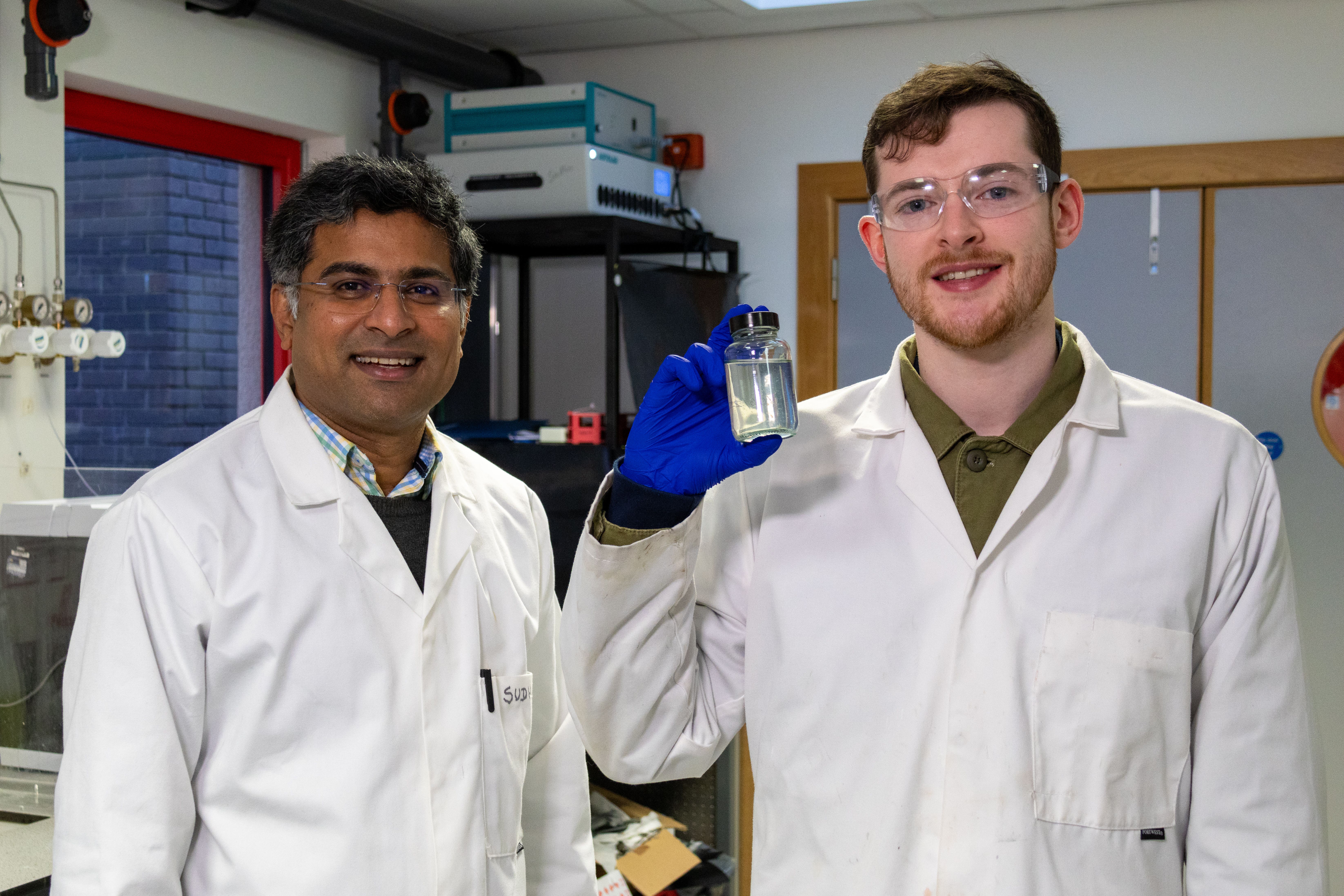Scientists turn whisky-making by-product into fuel for the future
A team from Heriot-Watt University have developed materials that can use wastewater from distilleries to produce green hydrogen.

Scientists at a Scottish university believe they have discovered a way to turn wastewater from the whisky industry into sustainable fuel for the future.
A team from Heriot-Watt University have developed materials that can use wastewater from distilleries to produce green hydrogen which, unlike fossil fuels, does not produce carbon when it is burned.
Green hydrogen is normally created using fresh water in a process thought to consume around 20.5 billion litres of fresh water every year.
The Heriot-Watt team hope the material they have developed will see some of the estimated one billion litres of wastewater produced by the distilling industry each year used to create green hydrogen instead.
Our research shows how we can use the world’s resources more sustainably to produce clean energy
Dr Sudhagar Pitchaimuthu, a materials scientist at the university’s School of Engineering and Physical Sciences, explained: “It takes nine kilogrammes of water to produce every one kilogramme of green hydrogen. Meanwhile, every one litre of malt whisky production creates about 10 litres of residue.
“To help protect the planet, we need to reduce our use of fresh water and other natural resources. So our research focused on how to use this distillery wastewater for green hydrogen production with a simple process that removes waste materials present in the water.”
Dr Pitchaimuthu and his team have developed a nanoscale material – a particle one in 10,000th the diameter of a human hair – to allow distillery wastewater to replace fresh water in the green hydrogen production process.
The nanoparticle, called a nickel selenide, treats the wastewater and produces similar or slightly higher quantities of green hydrogen from the water during research compared to fresh water.
The research is published in the Royal Society of Chemistry journal, Sustainable Energy & Fuels, in a paper authored by Dr Pitchaimuthu’s PhD student, Michael Walsh, who played a key role in conducting the research.
“About one billion litres of wastewater a year is produced from the distilling industry, so the potential of this process is huge,” Dr Pitchaimuthu continued.
“Using industry wastewater means we can reduce the extensive fresh water footprint associated with green hydrogen production. Our research also shows how we can use the world’s resources more sustainably to produce clean energy.”
The next steps for the Heriot-Watt research team include developing their own electrolyser prototype and scaling up production of their nickel selenide nanoparticles.
They will also analyse distillery wastewater to discover whether other materials of value could be salvaged from it, alongside hydrogen and oxygen.
The research was funded by Heriot-Watt’s School of Engineering and Physical Sciences and completed in collaboration with the University of Bath’s Department of Chemical Engineering and The Scotch Whisky Research Institute.
Bookmark popover
Removed from bookmarks